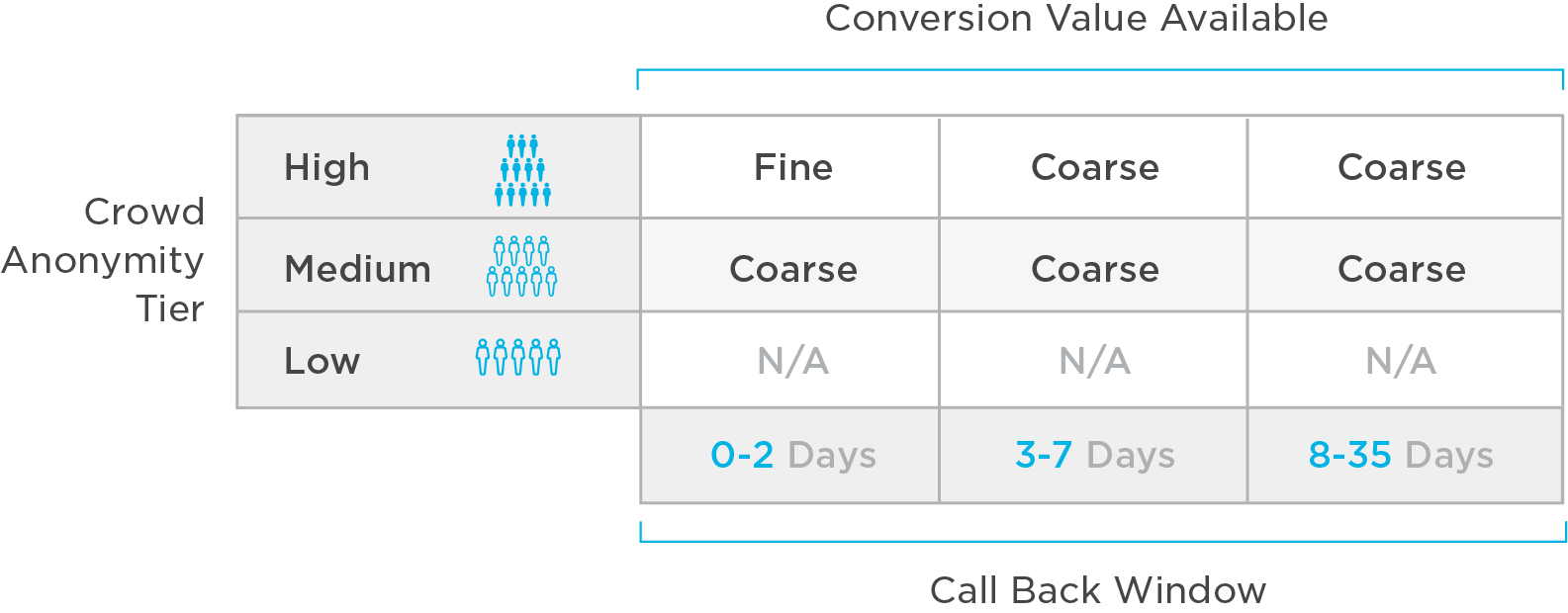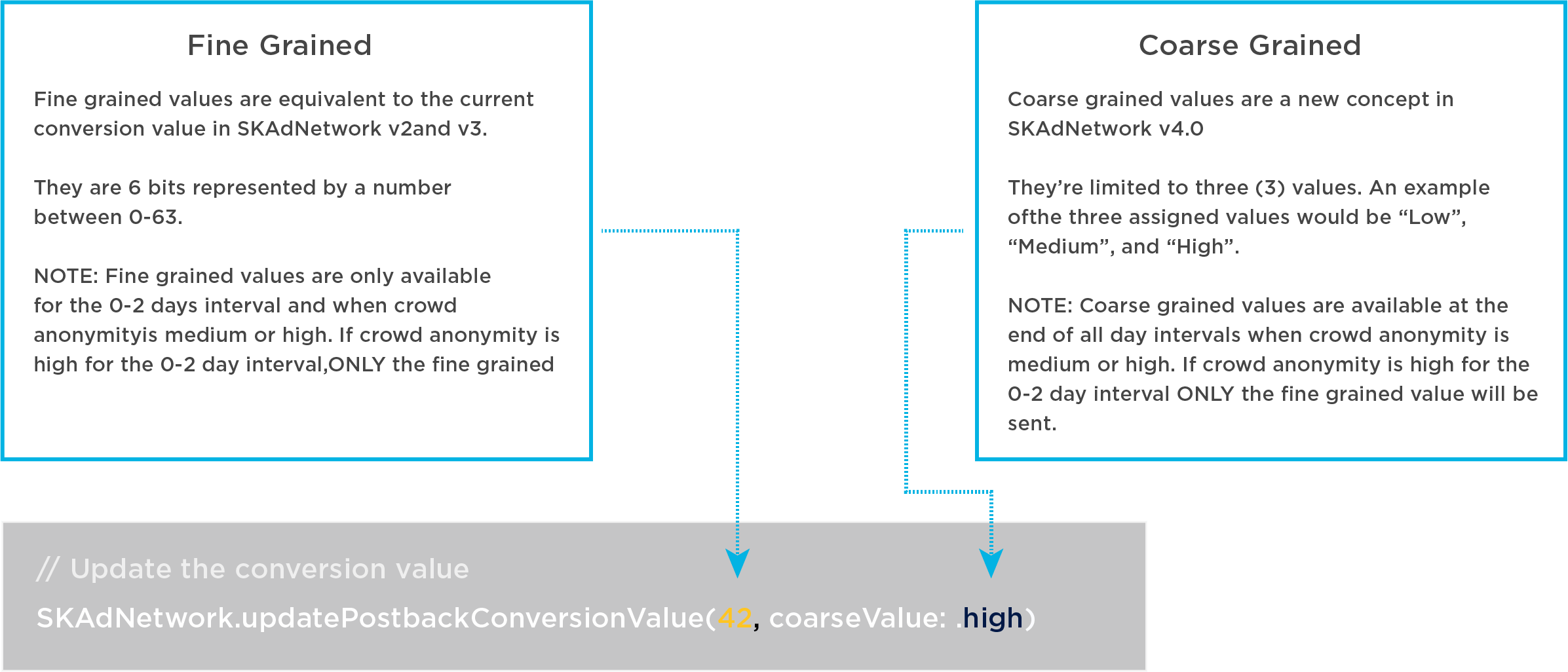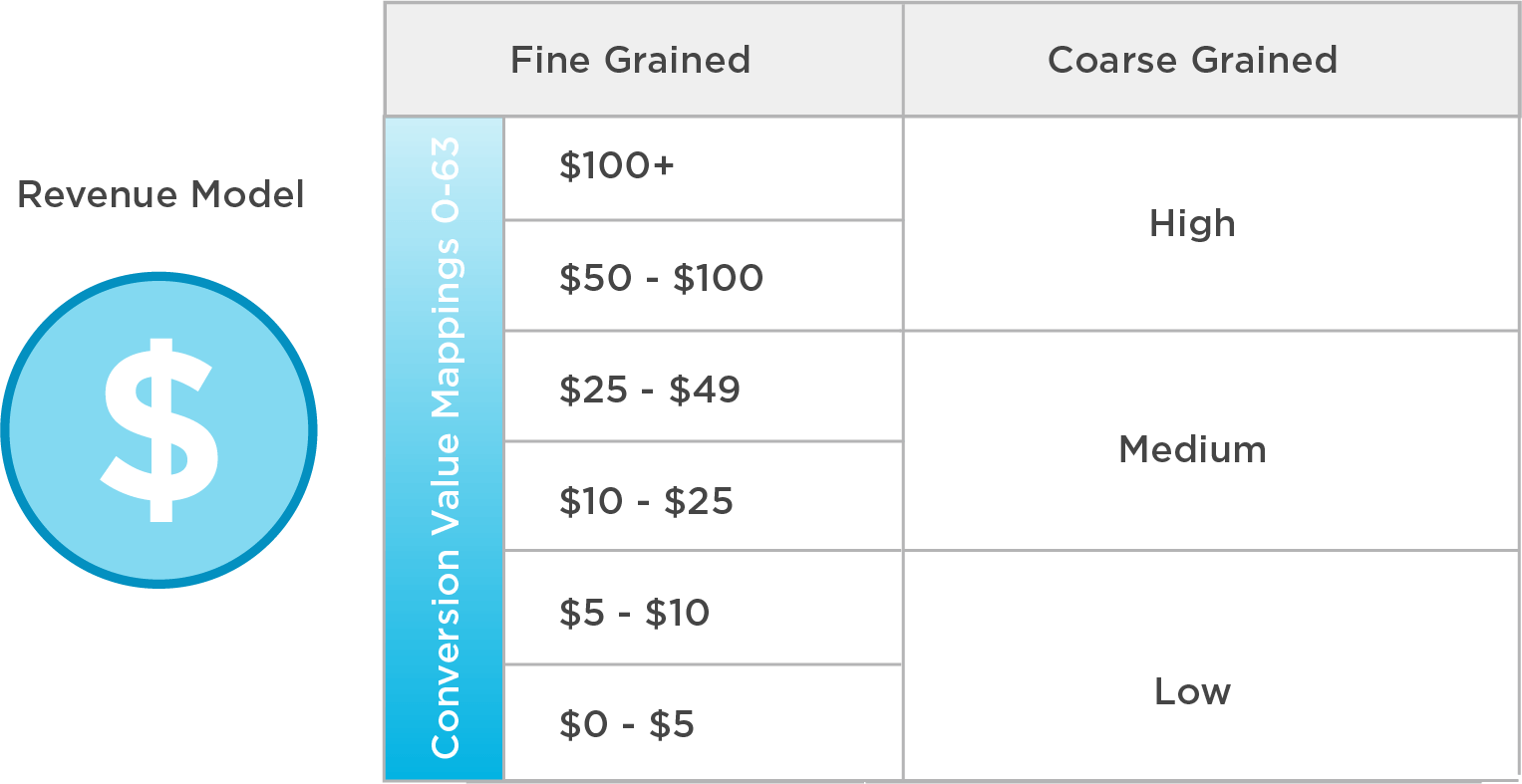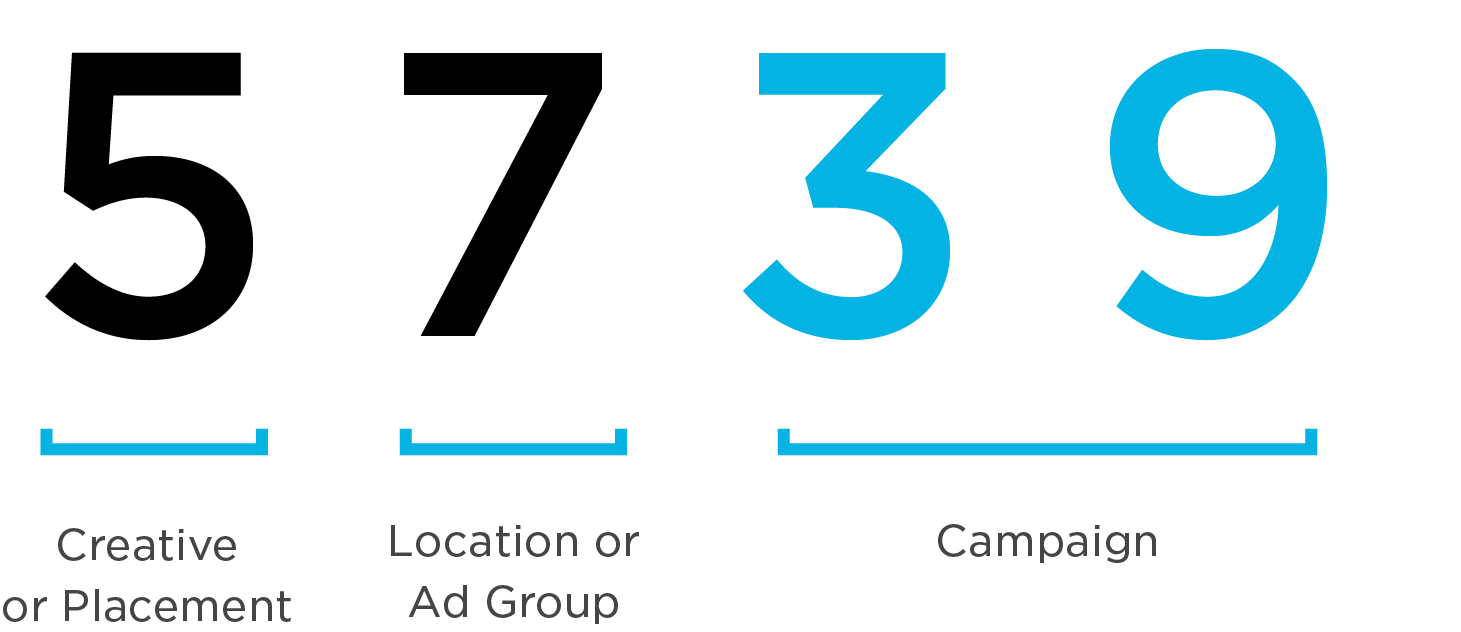What marketers need to know about iOS 16 SDK updates, evolving conversion value models, and more
NEW UPDATES as of October 24th. Read the about the latest developments HERE.
The iOS 16 beta is out, but SKAdNetwork 4.0 is not yet available for hands-on testing. While there are a number of details and questions that remain, there’s plenty to be discussed from what we know so far about the next iteration of Apple’s SKAdNetwork.
Before we dive into the changes, let’s quickly touch on what you can expect from Kochava to support your smooth migration to SKAdNetwork 4.0.
Need-to-knows on Kochava support for SKAdNetwork 4.0
SDK updates
A software development kit (SDK) update will be required across any mobile measurement partner (MMP), that handles updating the conversion value since Apple has consolidated the SKAdNetwork APIs in v4.0. Kochava will make all the necessary updates – meaning a code-free implementation for your developers. Once the new version of the Kochava iOS SDK is available, we will notify all clients.
Conversion model configuration
Apple’s changes around conversion values will impact MMP conversion models. To limit the level of effort required from the advertiser, Kochava is planning to automatically evolve existing conversion model settings to accommodate for the updates (more details on this later). Advertisers who wish to further customize and tailor their models will be able to do so.
Reporting enhancements
SKAdNetwork 4.0 introduces multiple conversions, the concept of fine grained and coarse grained conversion values, and a new source identifier to replace the campaign ID. Upon hands-on testing, our product and engineering team will finalize the required updates to reporting and analytics – giving our clients time to adapt their extract, transform, and load (ETL) processes.
Ad network adoption & web-to-app support
Kochava is already talking with media partners in the Kochava SKAdNetwork Partner Certification program. We will offer web-to-app support out-of-the-box, but adoption is solely in the hands of each ad network that may have web-based inventory. In addition, each partner will need to update their implementation of SKAdNetwork to support multiple conversion postbacks, fine and coarse grained conversion values, and mapping to the new 4-digit source identifier. Our integrations team will be coordinating with partners to ensure we support updated campaign metadata mapping.
It’s important to note that the adoption of v4.0 will not happen overnight. For a period of time, numerous ad networks may be operating on different versions. During this phase, we will ensure that we can capture data for v4.0 and all older formats – keeping your SKAdNetwork performance reporting fully intact.
Don’t miss any important product update announcements. Subscribe to our newsletter to stay up to date as iOS 16 and SKAdNetwork 4.0 approach.
Got questions about SKAdNetwork 4.0?
Join the conversation with our CTO and Head of Product on August 11th at 10 am US Pacific Time
Next, let’s unpack the primary changes for SKAdNetwork 4.0 in further detail.
SKAdNetwork 3.0 vs. 4.0
The table below compiles the key distinctions between the current version of SKAdNetwork 3.0 and the upcoming changes with 4.0.
| SKAdNetwork Version | ||
| Component | ≤ v3.0 | v4.0 |
| Web-to-App Attribution | No Support | Supported |
| Privacy Thresholding | Single Tier *Exact threshold count is unknown |
Multi-Tier Crowd Anonymity Scale (Low, Medium, High) *Exact threshold count per tier is unknown |
| Conversion Reporting | ||
| Total Postbacks Available | One (1) | Three (3) |
| Conversion Values | 0-63 NOTE: Each value update must be greater than the last |
Fine Grained (0-63) or Coarse Grained (3 values) NOTE: Value updates can increase or decrease |
| Delay Interval | After Expiration of 2 timers*Advertiser can choose when to close conversion value update window. Kochava allowed for advertisers to choose between D0 to D7. | At Close of Day Intervals (0-2, 3-7, & 8-35 days) *Advertiser cannot choose to close conversion value update window. Apple is making these static, fixed windows. |
| Availability | Only when privacy threshold is reached | Dependent on crowd anonymity and day interval |
| Campaign ID | 2-digit field (0-99) | Deprecated and replaced with 4-digit Source Identifier Last 2 digits are always available, 3rd & 4th digits subsequently unlocked based on crowd anonymity |
Regarding the privacy thresholding in particular, the shift from a single threshold to a multi-tiered crowd anonymity scale could mean that advertisers and ad networks get more directional performance indicators than previously available.

Under the single-tier model, the conversion value and source app ID were absent until the threshold was reached – an all-or-nothing approach. However, with the new approach, two of the three crowd anonymity tiers unlock at least some level of detail within the conversion value data and source identifier fields (more on this below). Without knowing any of the specific threshold counts it’s difficult to know whether the current privacy threshold is more equivalent to the high or medium crowd anonymity tier, but it’s safe to assume advertisers will have a bit more to work with than previously.
Multiple conversions
Diving deeper on the multiple conversions, ad networks and advertisers will now be able to receive up to three conversion postbacks, rather than just one. Each postback will be sent somewhere near the end of day ranges following the install. Those ranges are 0-2 days, 3-7 days, and 8-35 days. Whether timers will continue to be used or another obfuscation mechanism will still be applied at the end of each interval is not yet known.

Previously, most MMPs cut-off the conversion value update window between day of install (D0) out to a maximum of seven days post install (D8). To some extent, advertisers could choose the length of this measurement window – deciding how long they wanted to wait for post-install behavior insights in exchange for delaying the performance feedback loop for optimization. This update to multiple conversions will enable marketers to see longer term performance at multiple check-in points. However, by fixing the windows of time to static increments, Apple has removed some optionality from the advertiser’s hands.
Conversion values – fine grained & coarse grained
The conversion value sent in the postback for each of the day intervals is dependent on the crowd anonymity tier reached when the postback is sent. The following table expresses the scenarios where marketers can expect fine grained, coarse grained, or no conversion value.

It’s important to call out that previously, each conversion value update had to be greater than the prior value reported; otherwise, the update would be ignored. With SKAdNetwork v4.0, conversion value updates will be recorded whether they increase or decrease from the last reported value.

Factoring coarse grained values into conversion models
To simplify the transition to SKAdNetwork 4.0 for advertisers, Kochava will auto-generate the new coarse grained equivalents into current conversion model setups. Clients will have the option to log in and further customize these configurations if they choose, but no action will be required (other than the aforementioned SDK update).
Taking the revenue conversion model as an example, advertisers will have already mapped revenue bucket ranges that correlate to the values between 0-63 under the 6-bit setup. The new coarse grained equivalents will be auto-generated to intuitively categorize the more granular insights into the three values allotted.
IMPORTANT: This product direction guidance is tentative, pending Apple’s release of an iOS 16 beta version that allows for testing with SKAdNetwork 4.0.

Source identifier
R.I.P. campaign ID. Source identifier is the new 4-digit field that will be replacing the 2-digit campaign ID field. While the last 2 digits are always sent, the availability of the 1st and 2nd digits is dependent on crowd anonymity as expressed in this table.

At WWDC 2022, Apple offered up several possible source identifier mapping suggestions, but noted that the final approach would be in the hands of the ad networks and publishers.

Kochava is working with its partners to push for an industry standard to prevent the confusion that will likely ensue if every media partner goes their own way. At a minimum, use of the last 2 digits for the campaign ID is highly recommended for backward compatibility with v3.0. Adoption of 4.0 will not happen overnight, so the ability for MMPs to unify the data and reconcile reporting across v3.0 and v4.0 will help avoid major headaches.
Filling the web-to-app void
Last, but certainly not least, Apple’s introduction of web-to-app support with SKAdNetwork v4.0 is a welcome addition. The restrictions that Apple’s AppTrackingTransparency (ATT) framework imposed on ad measurement posed the biggest challenge for web-to-app campaigns, which had no fallback for attribution – until now. This new development could be a catalyst that sees greater expansion of the media partners registering with SKAdNetwork as an ad network. It may also be the precursor to Apple’s expansion of Private Relay, which would close the door to workaround attribution methods that rely on IP address.
We’re here to help
Most mobile marketers are no stranger to SKAdNetwork, but perhaps you just started feeling like you were finally comfortable using it – and now things are changing yet again. Know that our team is here to help. We’re dedicated to enabling our customers to make a smooth transition to the next generation of SKAdNetwork and are excited for the additional insights we will be able to deliver in light of Apple’s changes.
If you’re not currently a customer, contact us. If you already use Kochava, please contact your Client Success Manager or email support@kochava.com for questions.
Stay up-to-date with the latest news by subscribing to our newsletter.



